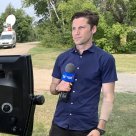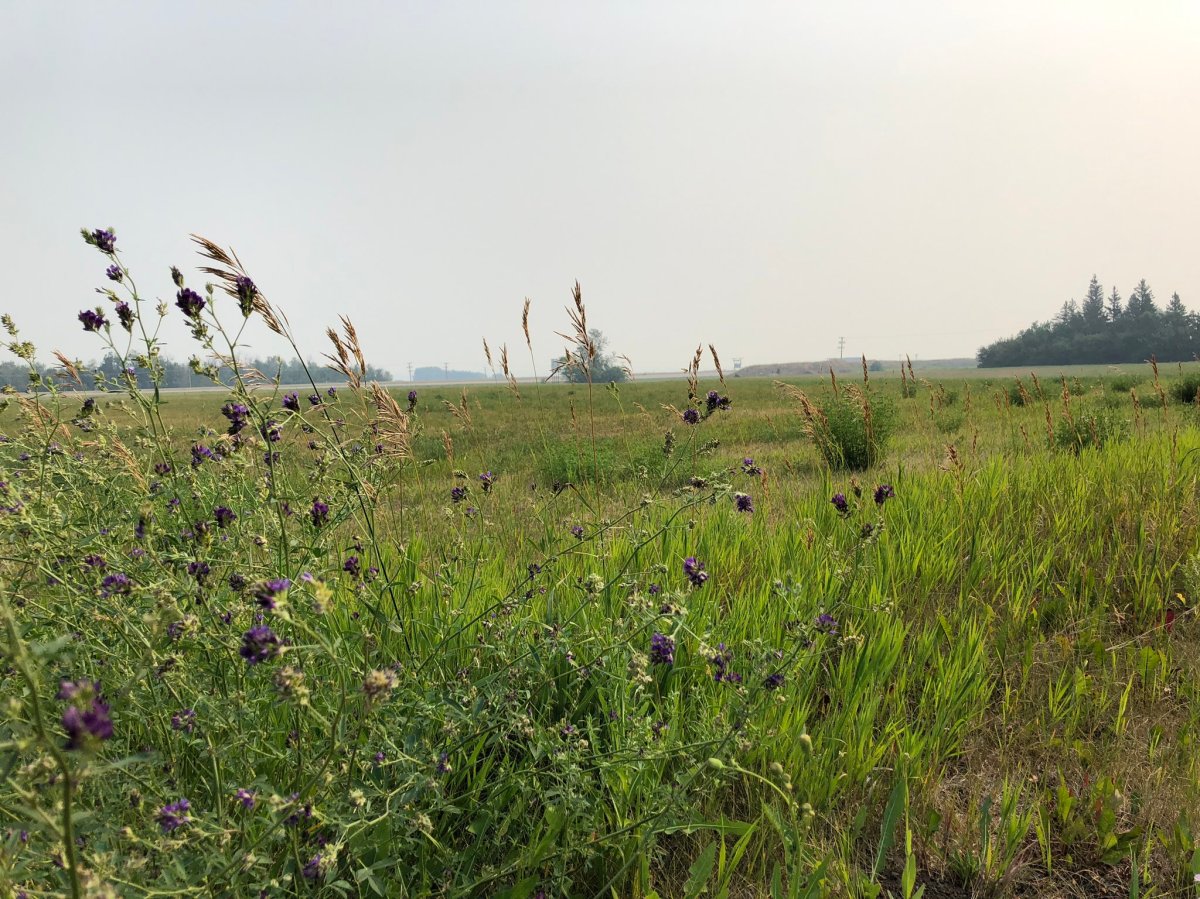Warning: This story deals with disturbing subject matter that may upset and trigger some readers. Discretion is advised.

Search efforts and programs to promote reconciliation at two former residential school sites for unmarked graves will continue with federal funding.
On Tuesday representatives from the Battleford Agency Tribal Chiefs Inc., (BATC) and the federal Crown-Indigenous Relations minister announced $2.7 million for the ongoing efforts at the site of what was once Thunderchild Residential School in Delmas, Sask. and the Battleford industrial school near North Battleford.
Teams from SNC-Lavalin began searching the Thunderchild site, also known as St. Henri school, with ground penetrating radar last July.
During the press conference in North Battleford on Tuesday, BATC executive director Neil Sasakamoose said teams haven’t found any remains yet, though they will resume searching in the spring and will expand where they are looking.
“I’m now relieved to hear that the Canadian government is taking responsibility for that ugly time in our history, that history that we as First Nations people grew up knowing,” Sweetgrass First Nations Chief Lorie Whitecalf said.
“Now we get to share that history, we get to have it acknowledged.”
- Canadian man dies during Texas Ironman event. His widow wants answers as to why
- ‘Shock and disbelief’ after Manitoba school trustee’s Indigenous comments
- Several baby products have been recalled by Health Canada. Here’s the list
- ‘Sciatica was gone’: hospital performs robot-assisted spinal surgery in Canadian first
Sasakamoose said the nearby First Nations are using school records to determine how many children were at the schools. He said the records show 44 children who attended the St. Henri residential school died and 107 students died while at the Battleford industrial residential school — though he said those are likely underestimates.
Ground-penetrating radar hasn’t yielded any results yet, besides showing the foundation of the residential school. Overall, search efforts have only located one person, Henry Achenam, a relative of Whitecalf’s, who was buried in a cemetery roughly a kilometre away from the site.
SNC-Lavalin is donating their efforts, Sasakamoose said, so the funding will go towards preserving the history of the site, so the names of those lost will not be forgotten.
That includes an interpretive centre that will record the children who died at the schools and programs to help elders through a traumatic time remembering and reliving their time at the school as they help people search.
The funding will also go towards reconciliation efforts and programs to improve race relations in the Battlefords area.
“The impacts of these residential schools, and of the many children who never returned home are truths you people have lived for generations and that many people in Canada have denied,” Minister Marc Miller said, speaking from Ottawa.

Miller said there was a moral obligation to pursue the truth and support survivors and families suffering from inter-generational trauma.
“This is a responsibility we have to support communities as you grieve and heal and a responsibility to remember and memorialize all of the lost children,” Miller said.
“It is a responsibility to ensure that the horrific truth of residential schools, residential institutions is never forgotten.
Jenny Spyglass is a senator for the Federation of Sovereign First Nations from Mosquito First Nation. Her younger brother Reggie died at the St. Henri residential school when he was four years old.
Spyglass said she was grateful the federal government had finally accepted the truth about the destructive attempts to assimilate Indigenous people caused.
“We can only hope and pray people will learn together to help our future generations, to heal from this terrible era,” she said.
The Indian Residential Schools Resolution Health Support Program has a hotline to help residential school survivors and their relatives suffering with trauma invoked by the recall of past abuse. The number is 1-866-925-4419.




Comments